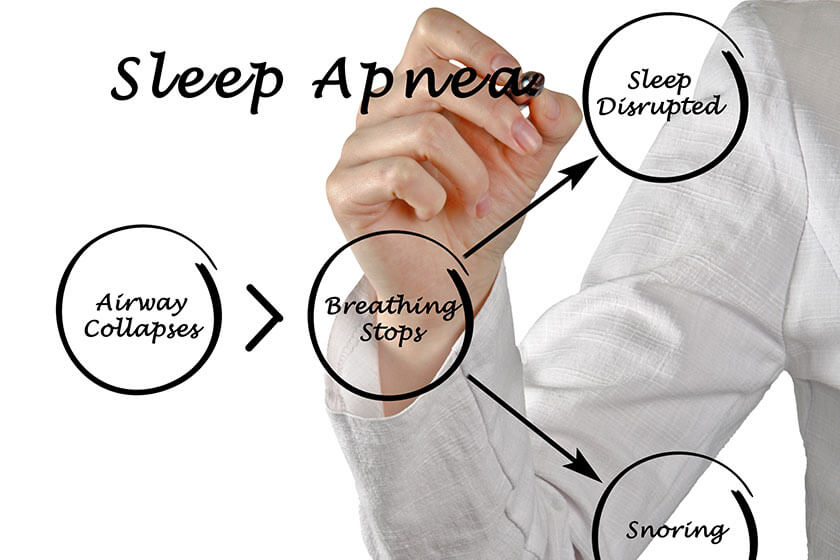As we grow older, our sleep patterns change as well. For some loved ones, they may find themselves having less quality sleep and even face challenges in sleeping peacefully throughout the night. In such cases, they may suffer from sleep apnea. Not sure what sleep apnea is? Well, it’s a serious sleep disorder that causes one’s breathing to be interrupted during sleep. Sleep apnea can be broken down into two types: Obstructive sleep apnea and central sleep apnea. Most people would suffer from obstructive sleep apnea, in which the airway is completely or partially blocked, resulting in the reduced flow of oxygen around the body. Central sleep apnea, on the other hand, occurs when the brain stops sending signals to the muscles to breathe as a result of an unstable respiratory control center. Regardless of which types of sleep apnea your loved ones are facing, these are the symptoms of sleep apnea in seniors to look out for.
Excessive Daytime Sleepiness
Since sleep apnea prevents your loved ones from getting a good night’s sleep, they are more likely to suffer from sleepiness during the daytime. This is especially harmful, especially for people who lead an active lifestyle during the day and have responsibilities to attend to. Some day activities like driving can also put them at risk if they’re constantly sleepy and unalert. Excessive sleepiness can also decrease their cognitive function, from thinking clearly and remembering information to performing both verbal and motor skills. All these are required for your loved ones to be and stay engaged.
Loud Snoring
Loud snoring is one of the most common tell-tale signs of sleep apnea. Not only does loud snoring disrupt your loved ones’ sleep, but also of their significant others and those around them. The thing is, loud snoring is quite common for some people, but if your loved ones snore loudly and continue to be sleepy during the daytime, then they are likely to suffer from sleep apnea. Loud snoring can also cause other problems, such as a sore and dry throat after waking up, which can be a nuisance.
High Blood Pressure
One of the more dangerous symptoms of sleep apnea is the increase in the likelihood of high blood pressure or hypertension. According to the American Heart Association, as people suffer from sleep apnea, the constant stop in breathing results in the release of stress hormones. What’s more, since there’s a drop in oxygen flowing around the body, the brain immediately signals the heart to pump more blood for more oxygen, which results in an increase in heart rate and blood pressure. Therefore, there’s a clear link between sleep apnea and high blood pressure.
Mood Swings
This is in correlation with excessive daytime sleepiness. As your loved ones are not getting enough or restful sleep during the night, this will cause them to get irritated easily, as well as suffer from frequent headaches. Eventually, you’ll find that they have mood swings throughout the day, which can hinder them from functioning productively and smoothly during the day.







